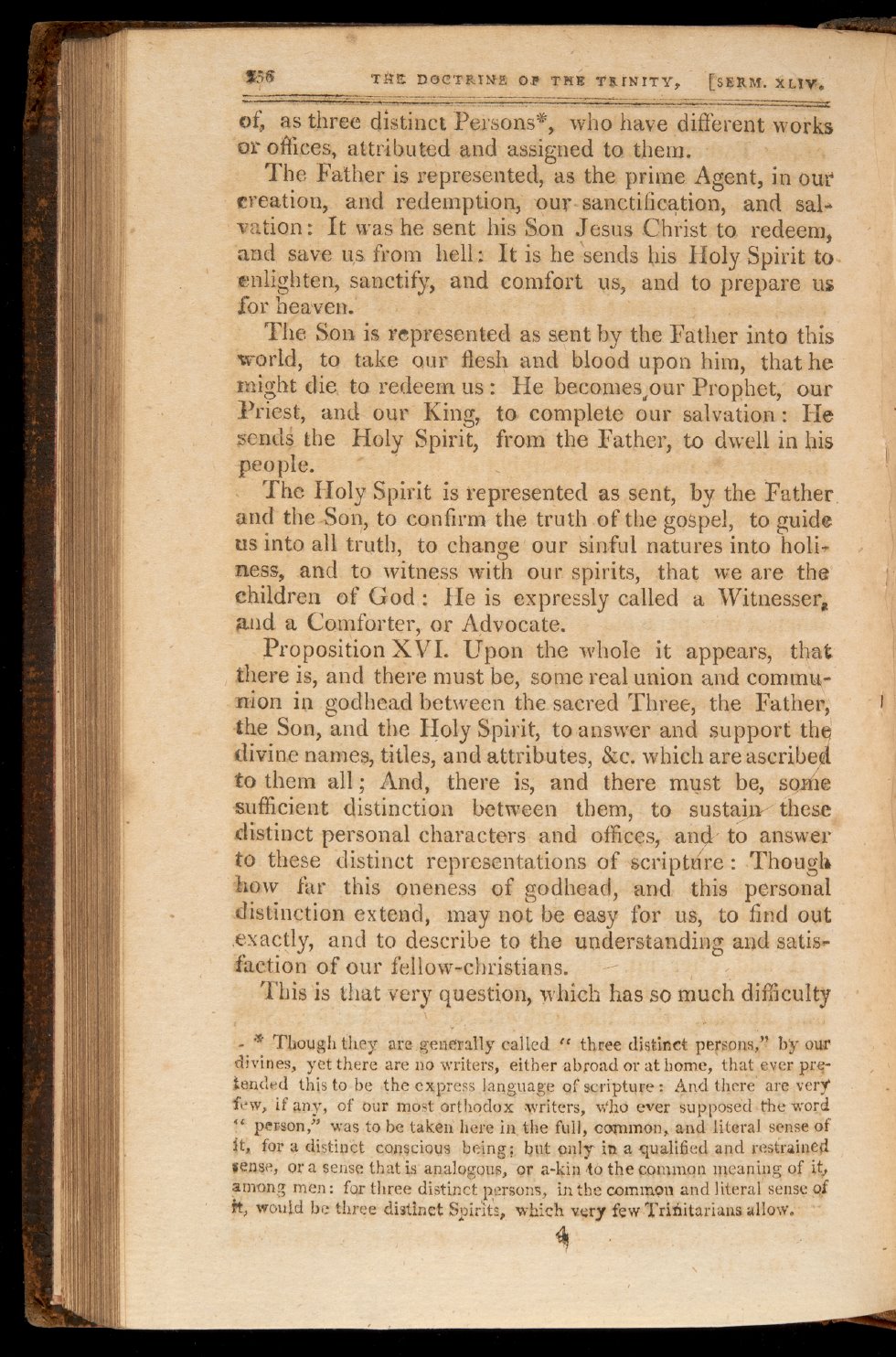

15'6
Tfte
DOCTRTftE
OP
THE
TBINTTY,
[SEAM.
XLIV.
of;
as
three distinct Persons
*,
who have different works
or
offices,
attributed
and
assigned to
them.
The Father
is
represented,
as
the
prime Agent,
in
out
creation, and redemption,
our
sanctification,
and
sal
-
vation
:
It
was he
sent
his Son
Jesus
Christ
to
redeem,
and
save
us
from
hell:
It
is
he sends his
Holy Spirit
to
enlighten,
sanctify,
and comfort
us,
and
to
prepare
us
for
heaven.
The
Son
is
represented
as
sent
by
the
Father
into this
world, to
take our
flesh
and
blood
upon
him,
that
he
might
die.
to
redeem
us
:
He
becomes,our Prophet,
our
Priest, and our
King,
to
complete
our
salvation
:
He
sends the Holy Spirit, from the
Father, to
dwell in his
people.
The
Holy Spirit
is
represented
as sent, by
the Father.
and
the
Son, to confirm the
truth of
the
gospel,
to guide
us
into
all
truth, to change' our
Sinful
natures into
holi-
ness,
and to
witness
with
our
spirits,
that
we
are the
children of God
:
He
is
expressly called
a
Witnesser
And
a
Comforter,
or
Advocate.
Proposition
XVI.
Upon
the
whole
it
appears,
that
there
is,
and there must
be,
some
real union
and
commu-
nion
in godhead between the sacred
Three, the Father,
the
Son,
and
the Holy Spirit, to answer and
support
the
divine
names, titles,
and attributes,
&c.
which are ascribed
to
them
all
;
And,
there
is,
and there must
be,
sathe
sufficient
distinction between
them, to sustain these
distinct
personal characters. and
offices,
an to answer
to these distinct representations
of
scriptaáre
:
Thougl&
how far this oneness
of
godhead,
and.
this
personal
distinction extend,
may
not
be easy
for
us,
to
find
out
exactly,
and to describe to the
understanding
and satis-
faction
of our
fellow-
christians.
This
is
that
very
question,
which has
so
much
difficulty
Though
they
are generally called
"
three distinct
persons," by
our
divines,
yet there
are
no
writers,
either
abroad
or
at
home,
that
ever pre-
tended
this
to
-be
the
express language of scripture
:
And there are very
few,
if äny,
of our most
orthodox writers,
e`ho
ever supposed
the
word
person,"
was
to be
taken
here
in the
full,
common,
and
literal
sense
of
it
for a
distinct
conscious
being; but only
in á qualified and restrained
sense, or
a
sense
that
is
analogous, or
a-kin to
the
common
meaning of
it,
among men:
for
three distinct
persons, in
the
common
and literal
sense
of
it, would be
three distinct
Spirit,
which very
few
Trinitarians
allow.

















